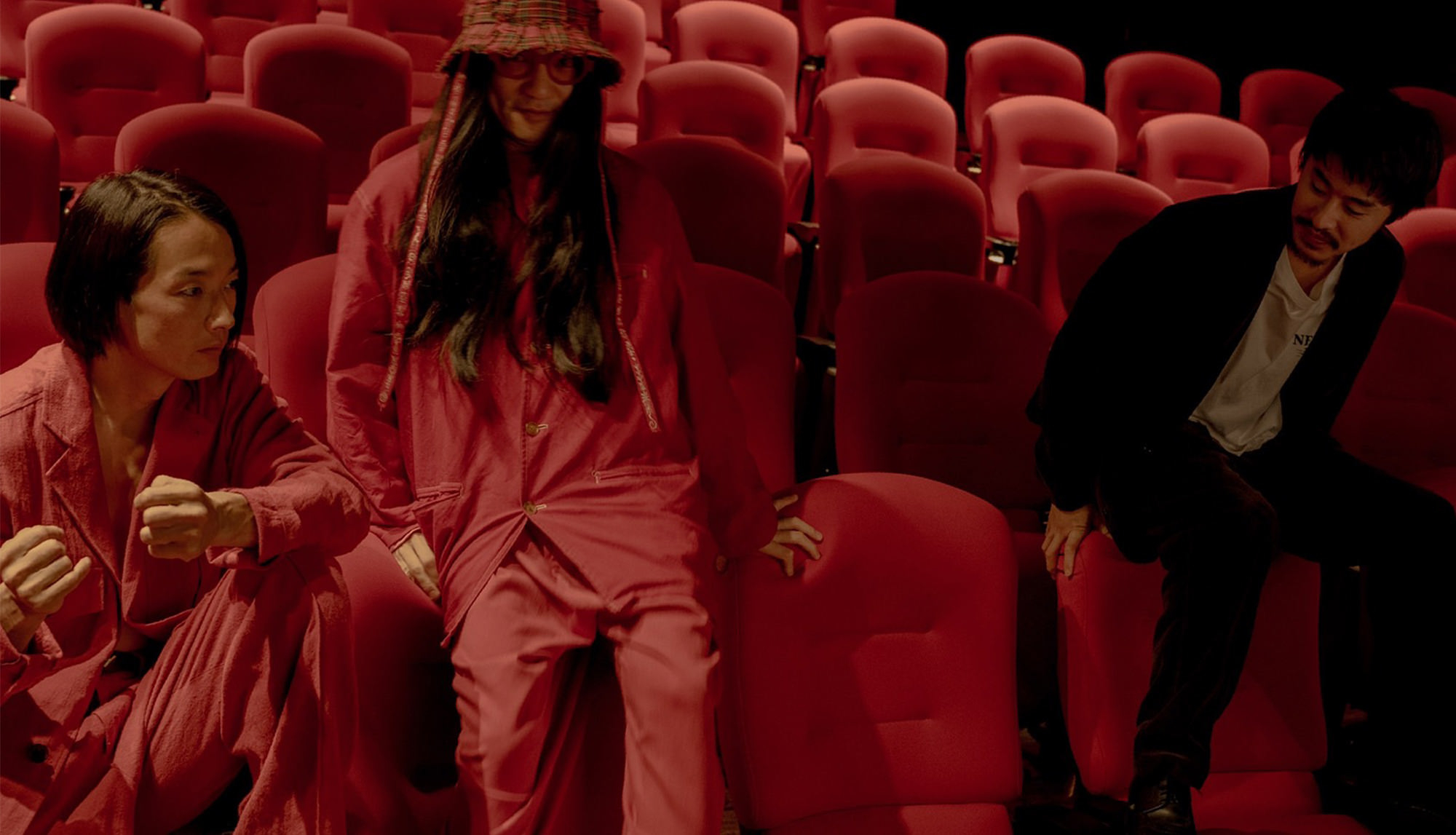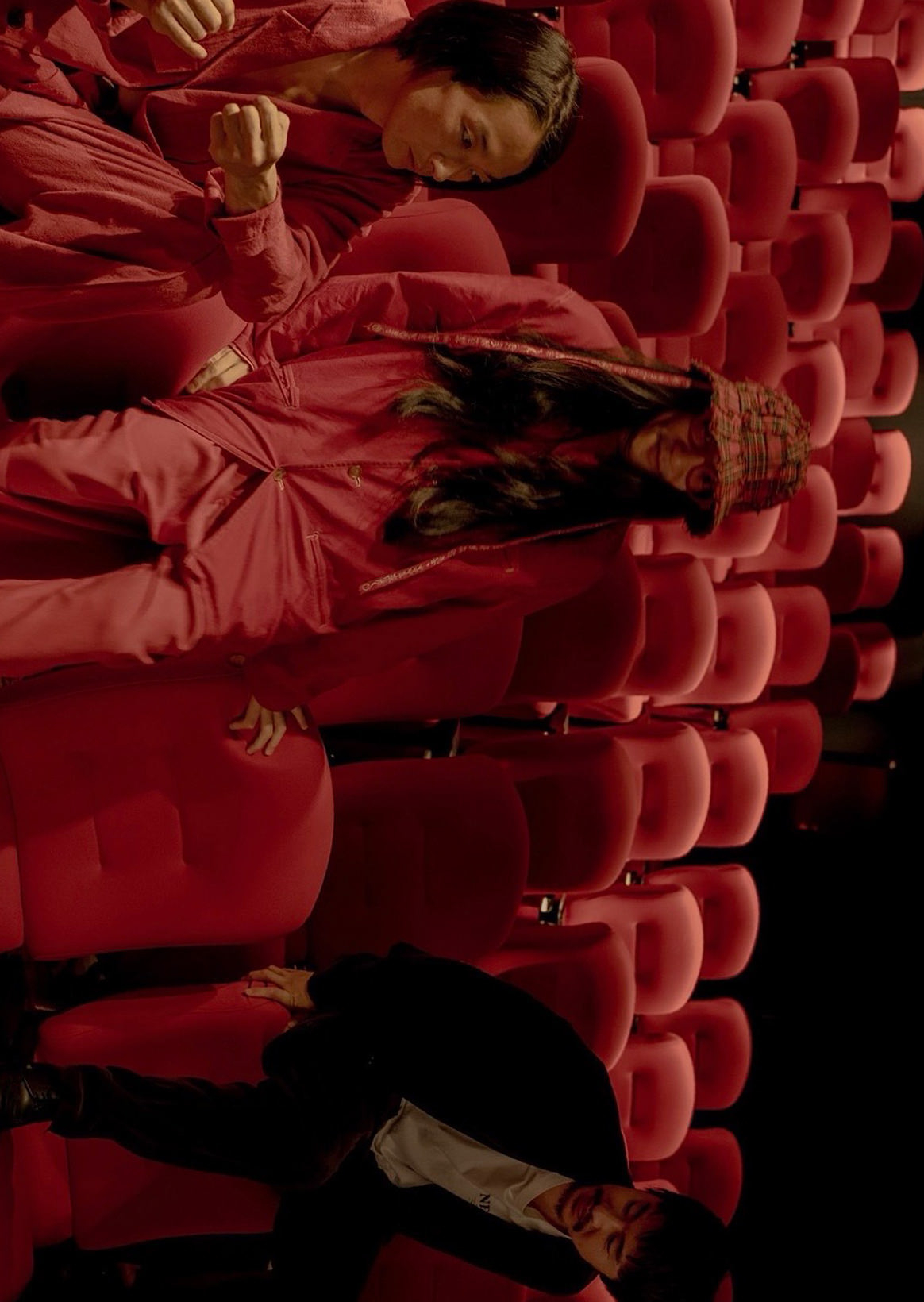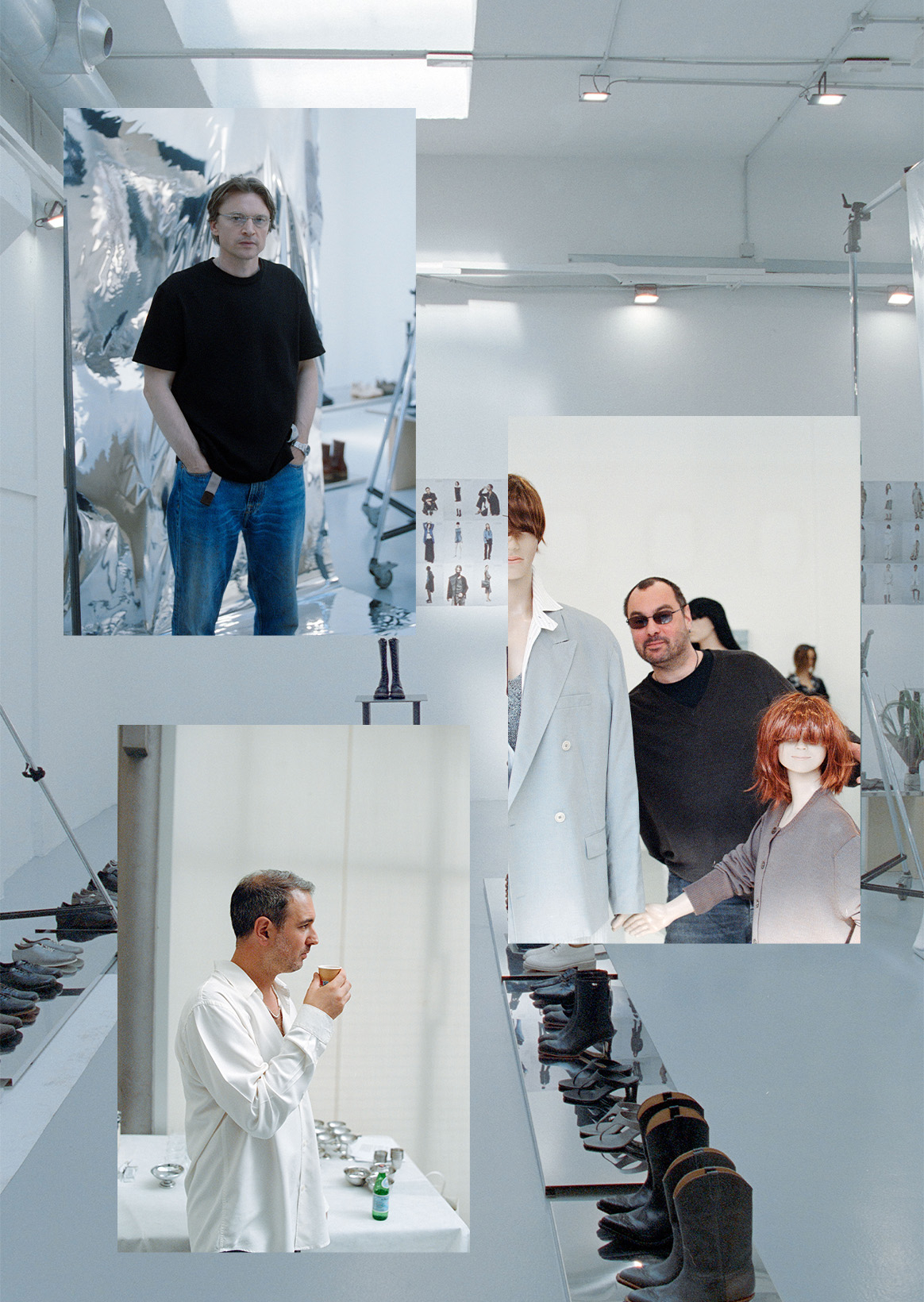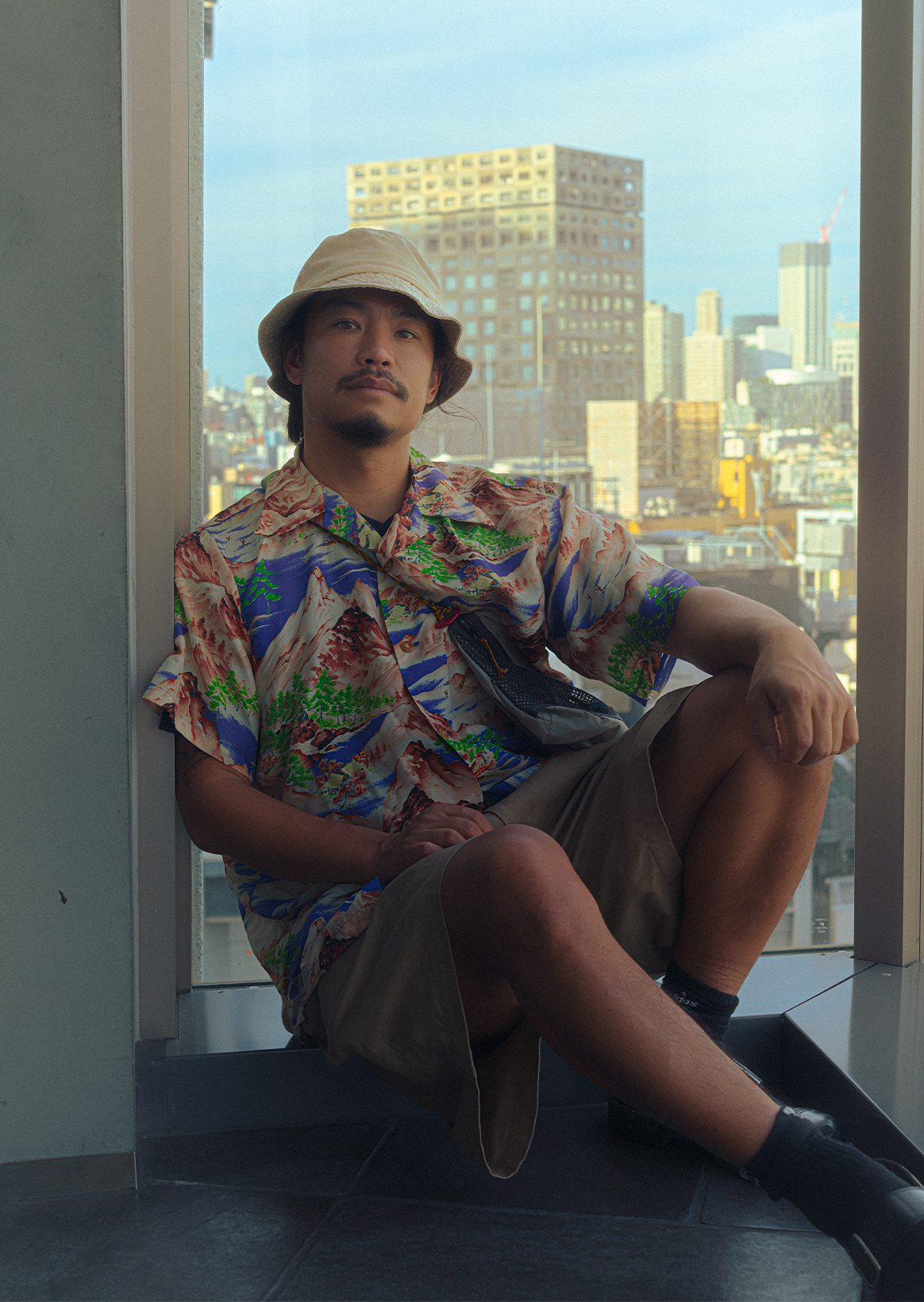As a member of GEZAN, Mahito the Peapo has created a sensation in the Japanese music scene, but also as a writer, he has written works such as "The Quietest Revolution in the Galaxy" and "Hikaribocchi". The movie "iai" is the first director's work for him, who has been showing his inexperienced achievements as a favorite child of the times.
The stage is Akashi and Kobe. The story will be developed mainly by the new American bandman Ko (Kentaro Tomita), who will be the protagonist, and his older brother (Mirai Moriyama), who Ko's longing for. Performers include Honami Sato, Kazuki Horiya, Mitsuru Fukikoshi, Eita Nagayama, Kyoko Koizumi, K-BOMB, and Ichi Omiya. Photographer Masafumi Sanai, who is the first challenge of the drama film, is filming, and Mahito is in charge of not only the director but also the script and music. Although making a film that is not bound by the Theory of the movie is somewhat distracted, the impulse unique to the debut film is pierced throughout, and the enthusiasm of the team involved in this film is transmitted.
What is depicted with the transparent scenery of Akashi is the life of tremendous energy swirling and the death that comes quickly. Before that, the characters are at a loss, and soon they begin to walk the path of regeneration. Such stories about life are also common to what Mahit pursued in GEZAN's latest novel, "The Later" (2023). How can we live as conflict arises around the world and despair covers society? This book does not give the answer easily. It gives you only the opportunity and hints to think and execute together.
At the end of the trailer of the movie "iai", along with the date of release, the word "Let's live together after the endroll is over" is shown. The message is directed to each audience. A different youth movie "iai". We spoke with Mahitu the Peapeau, Mirai Moriyama, and Kentaro Tomita, who dedicated the summer of 2021 to the filming of this film.
- Photo
- Masafumi Sanai
- Styling
- Mayumi Sugiyama(Mirai Moriyama)
- Styling
- Masakazu Amino(Kentaro Tomita)
- Hair&Make
- Motoko Suga(Mirai Moriyama)
- Hair&Make
- Yurino Hamano(Kentaro Tomita)
- Text
- Hajime Oishi
- Edit
- RIDE Inc.
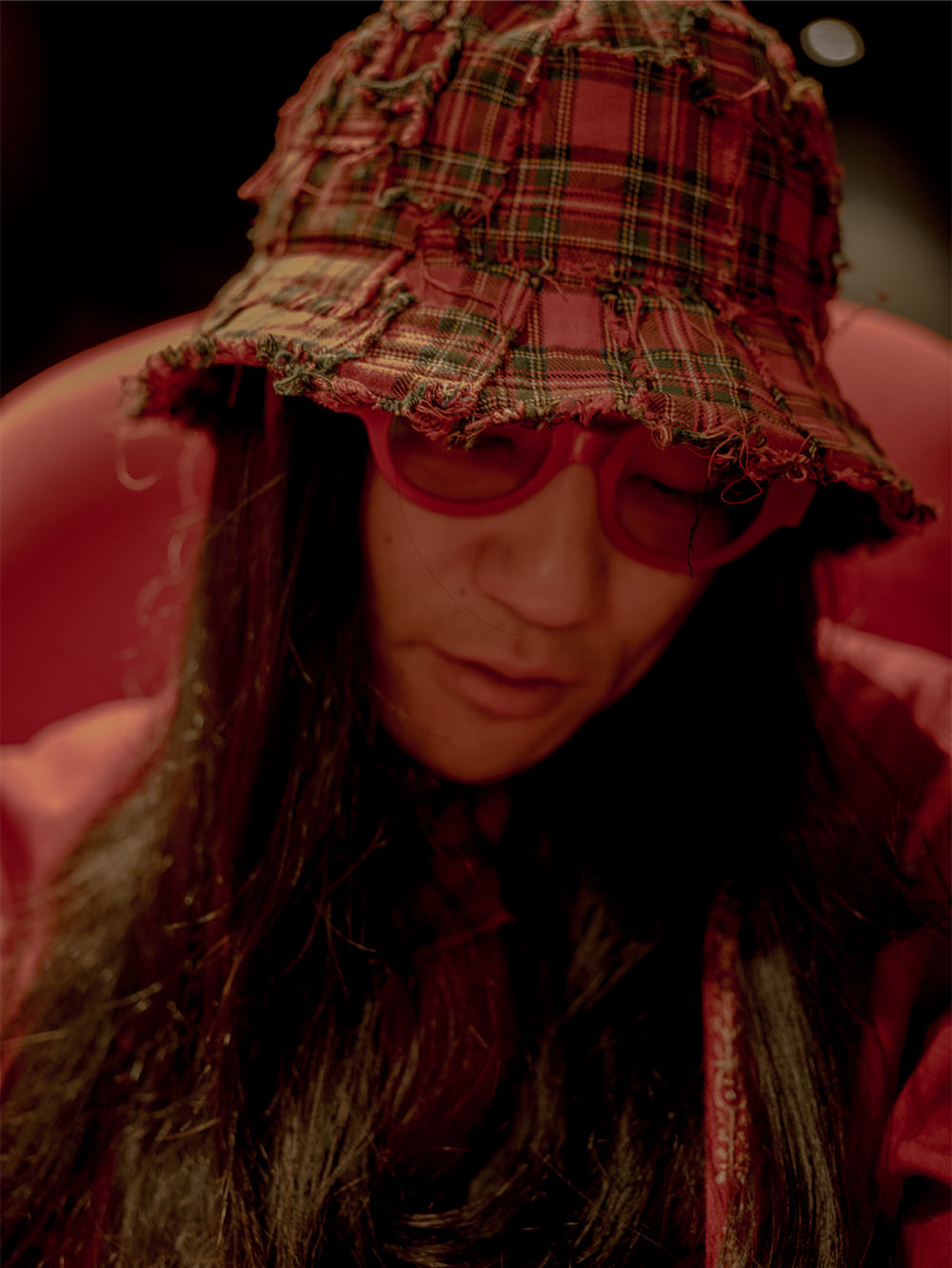
——Mr. Mahito has made various expressions such as music and writing activities, but how did you decide to make a movie this time?
Mahito: At the time of the COVID-19 pandemic, we couldn't have a festival called "All Sensation Festival (*)" that we were doing ourselves, so we were able to have more power. At that time, there was a fear that I was witnessing real-time deprived of close communication in the live house and being swallowed up by history, and I was thinking about where the sound that was supposed to sound would disappear. Even if the world pretends to be the original way, it is likely that what they valued will be taken away again. If you are in fantasy, you can reproduce scenes that were taboo during the COVID-19 pandemic, such as mosh and dive. It was also a time when I was conscious about recording a sign of something. There is a place where the movie came up.
——Were there any influence on the performance of director Toshiaki Toyoda's Day of Destruction (2020)?
Mahito: Yes, right? When I came out on the Day of Destruction, I thought that making movies was like a festival. I think there are some directors who try to perfectly reproduce what I drew in my head, but I think it's a movie that collects and records the signs of people who are there and the breath of people who are missing as a phenomenon. The "All Sensation Festival" is also appearing on the surface, but it is entrusted to each performer how to chew what he wrote in the statement, melt it in his blood, and how to perform. On top of that, it is made up of sharing the same space with many people, and I thought that movies and festivals are similar.
——What is the energy of the group, not the individual?
Mahito: That's right. I've been aware of it again recently. When I was asked by a friend named Campanella, "Mahito, what about the movie?", I said, "I made a good movie." Then Campanella said, "It's rare for Mahito to praise his work." Certainly, after my ALBUM was created, I used to say, “I made it hard,” but I never let go and said, “I did something good.”
——I see.
Mahito: I think it's a difference in nature rather than inferiority of the work. Last November, we held an event called "Road Trip To All Sensory Festival" at Kawasaki Nochidori Park, but just before that, OLAibi, who also made this movie music together, died, and I felt different from the usual year. But if you ask, "How was the whole sense festival?", You can say, "No, it was great" regardless of the content of your act. I think it's not just myself, but also about the phenomenon of "All Sensation Festival". I have that feeling in the movie too. As a director, of course, there are places that have authority, but it's not just my story anymore.
——Over the past few years, Mr. Mahito has been working with the Millilon Wish Collective, a large-scale chorus group, for a collective expression. Why is that?
Mahito: As with bands, isn't the film team like a tribe? For a certain period of time, people who have lived in different ways share the air toward a common goal and adjust the direction. I think it's a spiritual thing because I'm multiplying that person's life or borrowing time for life. I think you are interested in how you interact with others.
——At the same time, you may feel that you believe in what comes from your relationship with others.
Mahito: That's right. Behind it is also a large group, which is a kind of alarm against a huge system like the state. During this time, I saw a video of the conflict zone crying out “God is sleeping” on the Internet, and there were many opportunities to think “what is prayer?” I often think, "What is religion?" and "What is God enough to create conflict?" and I have to think about what it means to be involved with others or to be with people who are different from you. That's becoming one of the themes for me.
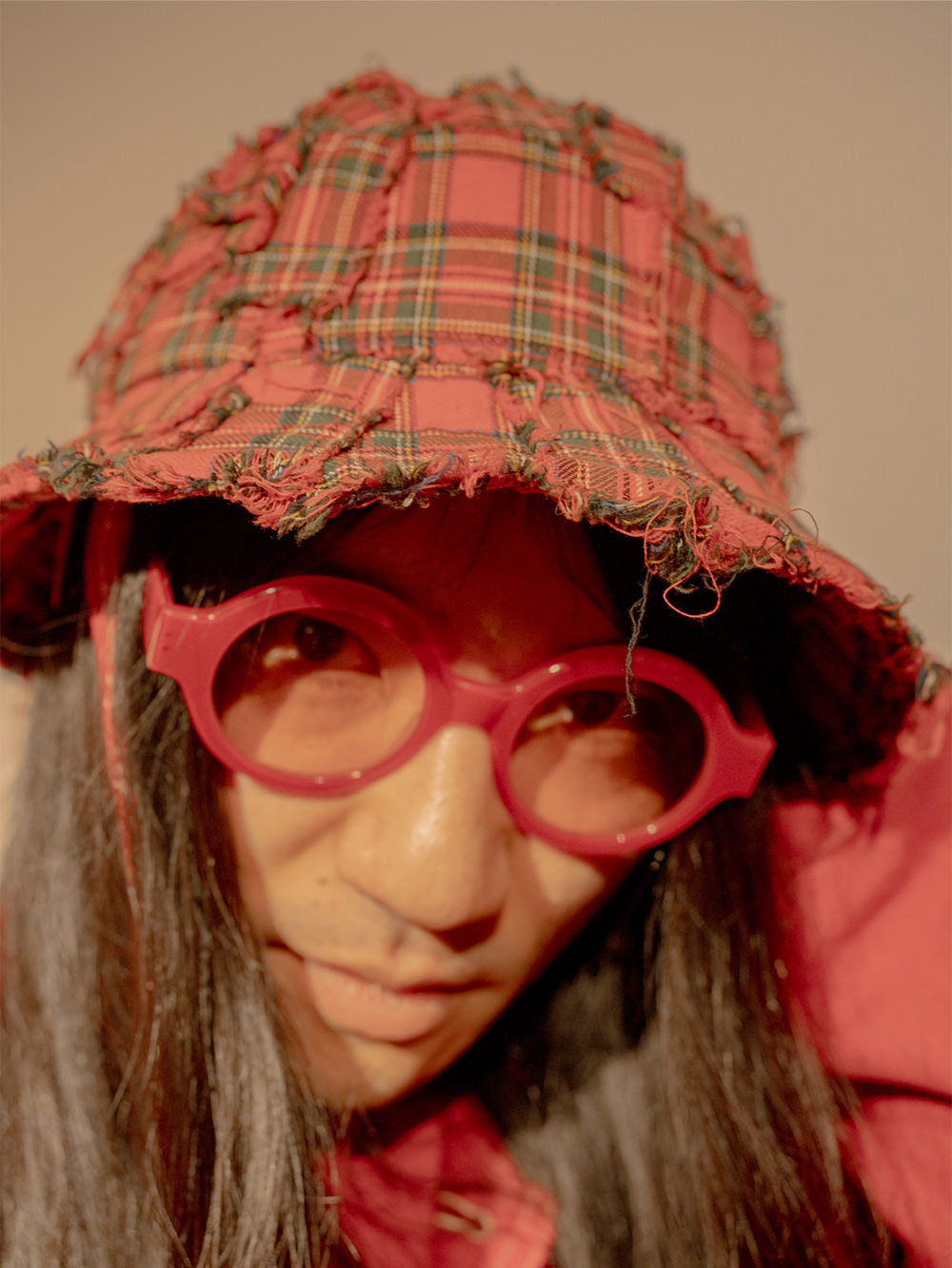
——By the way, did you know Mr. Mirai before this filming?
Mahito: No, it wasn't at all. There are actors I know personally, but instead of having them appear in such a relationship, I wanted them to judge whether this script was worth making a movie without filtering. It's also a personal story, and there are some places where I can't judge flatly by myself. Eita Nagayama didn't know, and Koizumi (Kyoko) met in the recording of "Day of Destruction" which is the insertion song of "Day of Destruction", but that's the relationship. I didn't know the production studio Blue, and I started with the information that "the staff seems to be coming and going to curry shops often."
——On the other hand, there are also people who can be said to be friends of Mahito, such as K-BOMB and Komai.
Mahito: This time, I may have thought a lot about the balance between the people who work together for the first time with the staff. I wonder if it would be nice to gather the staff who learned about the method of the movie and get the opinion that "making a movie is like this." I thought about an exquisite chemistry, or I wanted to do it as an extension of what I had done so far.
——Why did you offer Mr. Mirai the most important role in this work, Mr. He?
Mahito: This movie is a primitive story, and I think it's a story that has been portrayed many times in the movie where a longing person dies and goes from loss to rebirth again. Among them, the characters live with emotions that are neither light nor shadow, or unnamed emotions. Expression also has the role of contouring such ambiguous things, so I think it's something that people who catch things on a plane can't face. I think Mr. Mirai has expressed various things three-dimensionally while placing the most unchangeable thing called the body in the middle. And there's only Mirai-san.
——How did you feel when Mr. Moriyama received the offer?
Moriyama: Originally, I was working on a different job with the studio blue producers, but in that process, I received an offer saying, "There's such a story." I'm sorry, but at that time, I didn't know the existence of GEZAN or Mahito, so I was allowed to read the script without prior information. It was like a private novel, and I didn't form the script, but it was a direct transmission of Mahito's world view. "I don't know how this will be a movie, but I think it's interesting to put one foot in it." However, there is also a fragile feeling that I don't know how it will be made as a movie. At that time, I heard ALBUM called "KLUE" by GEZAN and felt, "Oh, it's okay."
——What kind of feeling was that?
Moriyama: I mean, I think it's simple and reliable. At the same time, I felt that I was seriously thinking about how I could deliver it to the people living today. There are some songs that flew away, but I felt that it was music that was made conscious of delivering words properly. If you are a person who has made such a mistake, you can trust it. After that, I received a letter from Mahit.
——What kind of letter was it?
Moriyama: It was a very handmade letter that had no thoughts, and I was happy with it. If I hadn't had that letter, I would have done it.
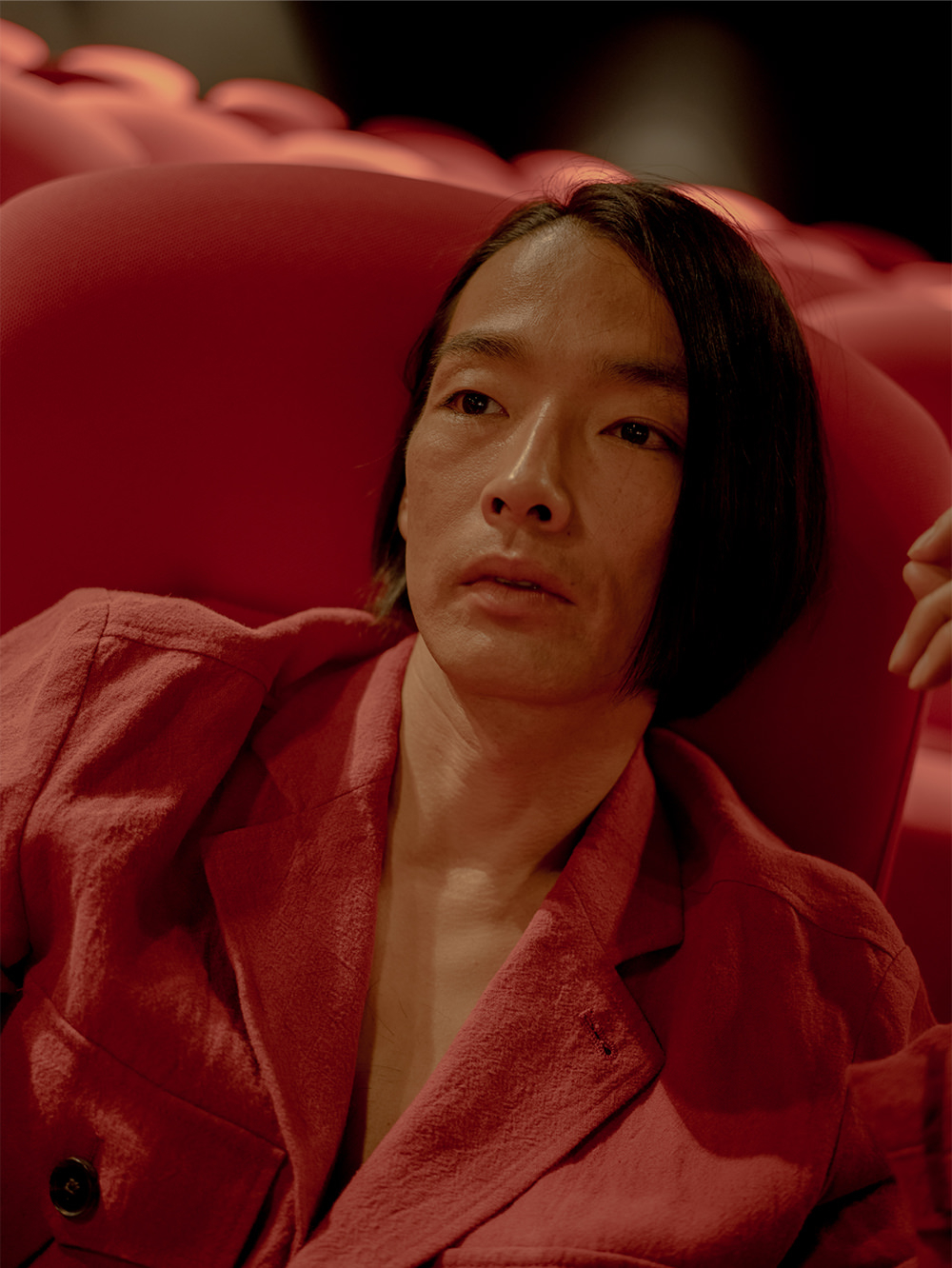
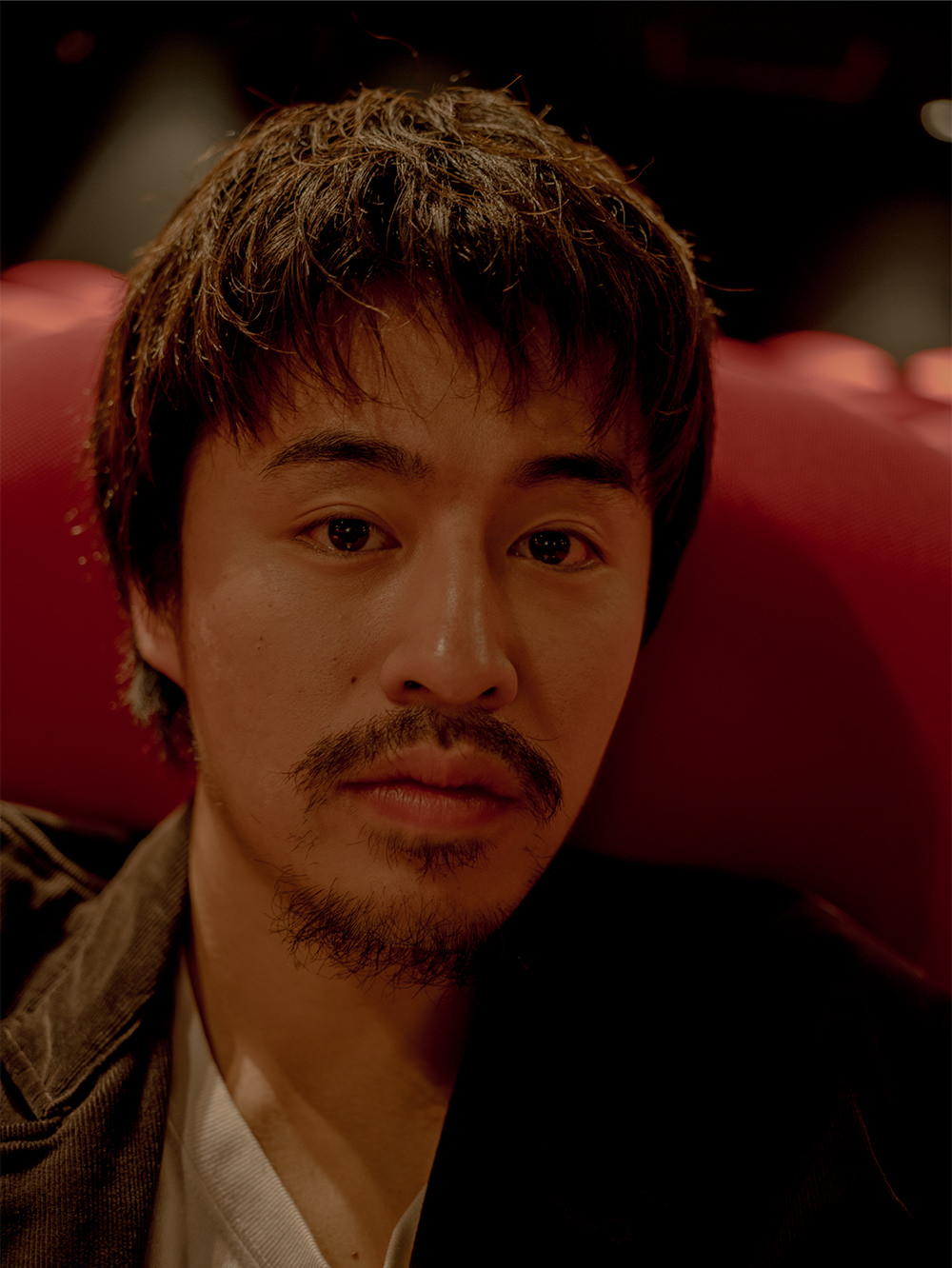
——What did you feel when you read the script?
Tomita: I read it from the viewpoint of Kou that I play, but there are many parts I don't understand. So I wanted to meet Mr. Mahito and listened to the story. I'm trying to express something like the vague love I feel to my family, friends and seniors, but Mr. Mahito seems to be trying to convey something that transcends such things, and I want him to carry the role of Kou. But at that time, I didn't understand it, myself.
——Why don't you go to the scene without knowing?
Tomita: That's right. At the beginning of the filming, I was just trying to do what I could do at that time.
——Who was the real person who became the model of Hey brother?
Mahito: He was really like his brother in the play. There are many things I can't write here (laughs). It's my brother, but I've always been inspired. I was taught about BOREDOMS and various bands, and I always wanted my brother to watch GEZAN live. I'm going to ban with Seiichi Yamamoto, and finally my brother can see it! When I thought I tried to contact you, I was told that I was just dead. It was also the first loss for the band, right? (As a member of GEZAN) Taka also played a band together.
——Was your brother a musician?
Mahito: Yes, you're a musician, right? I thought my brother would turn the world upside down, but if I think about it later, its existence is only on CD-R. In that sense, I'm not a person who left some scars in the form that remains in the world, but it's clearly engraved in my memory. The numbers "I sold tens of thousands of CDs" and "I mobilized thousands of live" are engraved as records, but I think the fact that I changed the life of just one person is amazing. I don't think it's inferior to a lot of numbers.
——That's right.
Mahito: Ian Mackay, who used to play a band called Fugazi, said, "Really radical and wonderful music can always be seen by only a small number of people," but when I go to live, it's like that. After all, there is a feeling like a counter to the current world where only productivity is emphasized.
——So, is the Ko that Tomita plays also Mahito?
Mahito: That's what you hear. Is his brother Mahit or Kou Mahit? Tomita came to see GEZAN's live show and said, "Mr. Mahito, he's my brother." I don't think anyone is me, and I think all the characters came out through my blood.
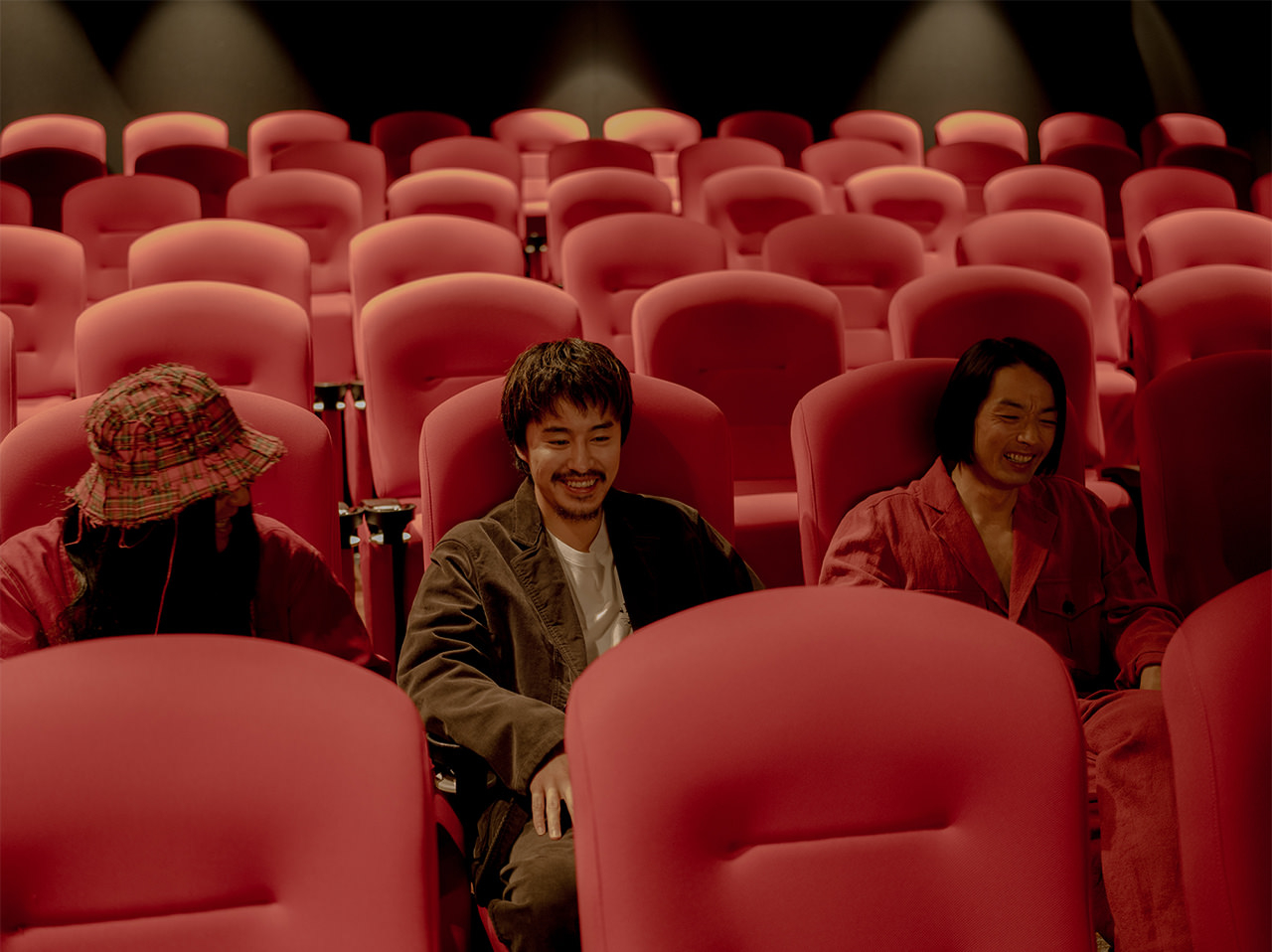
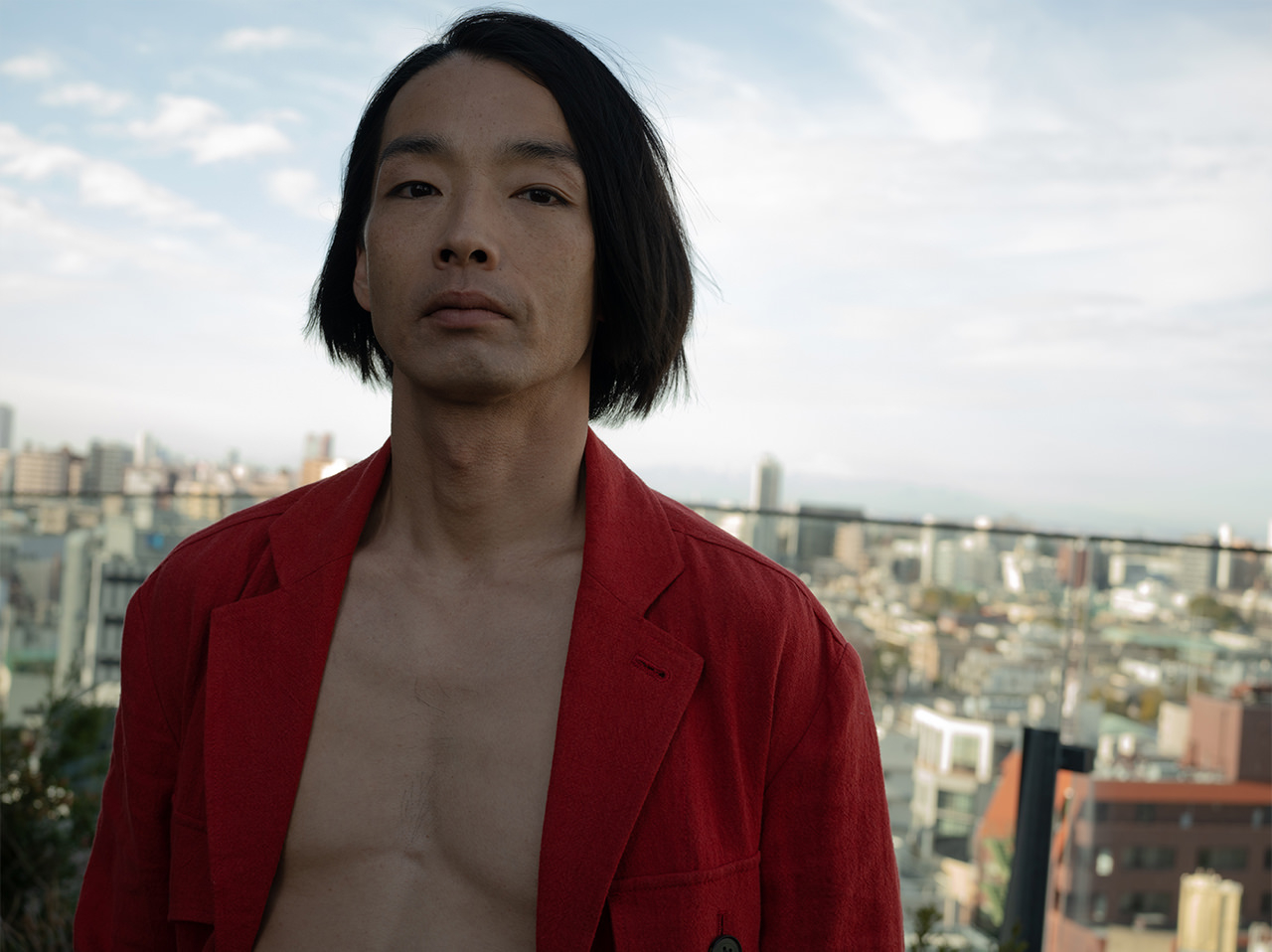
——How did Mr. Moriyama decide to play his brother?
Moriyama: First of all, I thought the place to shoot was also important. At the script stage, Akashi and Kobe were set on stage, but there were talks about whether to shoot Kobe in the sea around Yokohama or Kamakura, or actually do it in Kobe. I thought I would never have to be Kobe. I thought it was important to shoot on the spot, which is said to have influenced GEZAN, and the script was born from there. And since it is a story of the Seto Inland Sea and the story of the sky, the unique humidity and color feeling will never appear in the Pacific Ocean and the sky, and it will be a different work. I've been saying that from the beginning.
Mahito: One of the conditions for Mr. Mirai to appear was "taking pictures in the sea of Kobe".
——Certainly, the color of the sea is very unique, creating the silence unique to this movie. What kind of image did Mr. Mahit overlap with the sea?
Mahito: I was taking a picture of the pool of the sea that did not go deep in the Seto Inland Sea. And that's what's not a substitute. One of the scenes that didn't show the sea, there were actors and towns that were exposed to the seaside wind, and the sea made a movie. When I look at the sea from the shore, I think the desire to get out of this place makes me stand there, but I once looked at the sea of Kobe with a complicated feeling that I couldn't say in a single word. I think the sea, which allows me to feel confused, symbolized the three-dimensionality of this movie.
——Mr. Moriyama is from Kobe, right? Whether it's Kobe or Akashi, I think it was shooting in a familiar place.
Moriyama: That's right. In the world of dance, there were more people in Kansai. Maybe the world of music is the same, but I think there are many people who are connected to living in the last minute by dancing, and I think they are still there.
Mahito: What is that soil in Kansas? There was a lot of music in the world.
Moriyama: The same is true in Osaka, and the city of Kobe is also a hangout for such people. Being adapted to society, living in efficiency, and expressing. It is just a story that there is a difference in the balance between what you can and cannot do, and if you change the way you say, there is a sharp point in what you can do because there are things you can't do. When I played my brother, I was doing it while imagining the people I've met so far.
——That's interesting, isn't it? Mr. Mahito and Mr. Moriyama each imagined a different real person, and it is said that it is fruitful to Mr. Hee on the screen.
Moriyama: That's right. The smile is soft to those people (laughs). Say thank you for saying “thank you.”
Mahito: Oh, I know. Because you are not bound by binding or responsibility, and you are not carrying anything, the circuit where your emotions and feelings are directly expressed on your expression is simple, and the speed to express your intuition may be faster.
Moriyama: You can respond very naturally to something at that time.
——What kind of show did Mr. Mahito make? When you look at the work, you gradually become unsure how far Mahito's directing is and how far Moriyama is improvised.
Moriyama: I've been talking with Mahito all the time during the shooting, but I don't think there was much to say that I wanted to do this or do that. Of course, there were times when there were stories like "I want you to move this way because the angle of view is like this."
Mahito: I still don't understand what directing is, so I'd like to listen to other directors' stories. I don't think there is a difference between non-fiction and fiction. Strictly speaking, even if it's called a documentary, there's a directing, and even what's called fiction depends on the way the person has lived. I will tell you the image, but I have to leave it to the actor in the end what kind of interpretation it will be and what kind of expression it will play.
——What was the atmosphere of the shooting scene?
Mahito: Friends and acquaintances of the actors who came to the preview, such as Masanobu Ando and Ryuhei Matsuda, said, "I can tell you that the atmosphere at the site was good." I can't compare it to others because it's my first time on the scene of my movie, but I think everyone was like baseball compared to regular dramas and movies with fixed compositions. How was it compared to other sites (turning to Moriyama)?
Moriyama: It was Mahito's first film, and Sauchi's first filming, but it was surprisingly proper (laughs). There was no impulsive movement such as "I want to do this" or "I want to do this" on the spot, and how I want to shoot the script, the image was united in Mahito and Sauchi, and I walked steadily on it I think it was a shooting. Nonetheless, it wasn't really decided, but there were scenes where we coordinated in the exchange of the field, and there were moments like a kind of session.
——How was Mr. Tomita?
Tomita: I don't have much experience in the movie scene, but anyway, I was doing it while feeling the air of Akashi and Kobe all the time. In the air, Mr. Mahito and Mr. Sauchi were talking, and the shooting proceeded while looking at the backs of the two. But Mr. Sauchi also said, "I don't have the desire to photograph you" (laughs). I feel like it was an answer to the blunder of this script in myself. Kentaro Tomita was looking for something as a Kou, but I feel that Sauchi-san knew that.
Moriyama: Speaking of which, I feel that I was a little more shy about Mr. Sanai than Mahito (laughs). I think Sauchi's style has the aesthetic of how to get out of the frame, so when I replaced it with a video, I couldn't see at all how it would be shot. So at first, there was a feeling of hiding in the meaning of "What kind of picture is this?"
Mahito: Before the filming began, I was communicating the image of director Nobuhiko Obayashi to the inside staff. I don't want to make a movie like director Obayashi, but I think it's okay to overflow my image as embarrassed as Obayashi's work.
Moriyama: I don't know what GEZAN and Obayashi works are.
Mahito: When I had a meeting with Mr. Sauchi before shooting, Mr. Sauchi played a video of Director Obayashi on YouTube and said, "I think Mahito can make such a movie." I didn't say anything about director Obayashi. So, at first, there were places where I was hooked, but there were places where I bet on Mr. Sauchi's sense of capturing things that I couldn't see. However, Mr. Sauchi, at first, I said, "I'm going to the scene without reading the script" (laughs). It sucked me.
Moriyama: But you read it on the way, right?
Mahito: That's right. I thought, "This is different" (laughs). Sauchi is also a person with an animal sense. Among them, I am also aware of my role in the field. For example, when you soften the air at the site, try to make a voice like "By-n". Isn't that very animalistic? There are many parts that Mr. Sauchi protected the pure margins.
——Either way, I thought that Mahito was softening the air at the site, but Sauchi was playing that role.
Tomita: That's right. Mr. Mahito told me a lot of things in the conversation between shootings. I want to convey, and I'm not enough of this kind of thing in Tomita now, and encouraged me on LINE.
Mahito: I wonder if that happened (laughs).
Tomita: "It's okay, you can do it," give me a line when I'm so worried. In the second half of the filming, I was waiting for the LINE all the time (laughs). I'm so cowardly, so I'm worried. When I saw my phone waiting at that time, I thought it was okay.
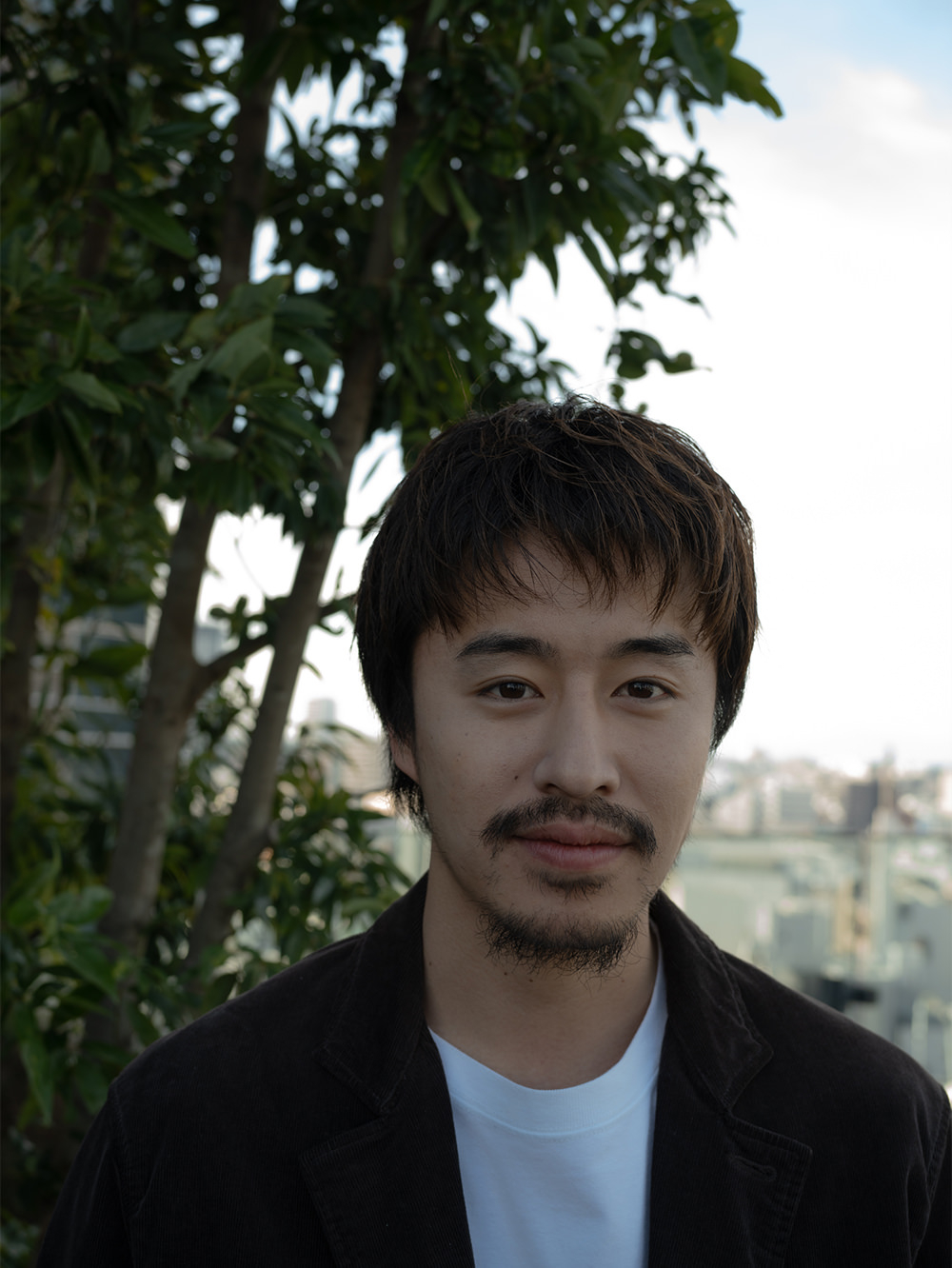
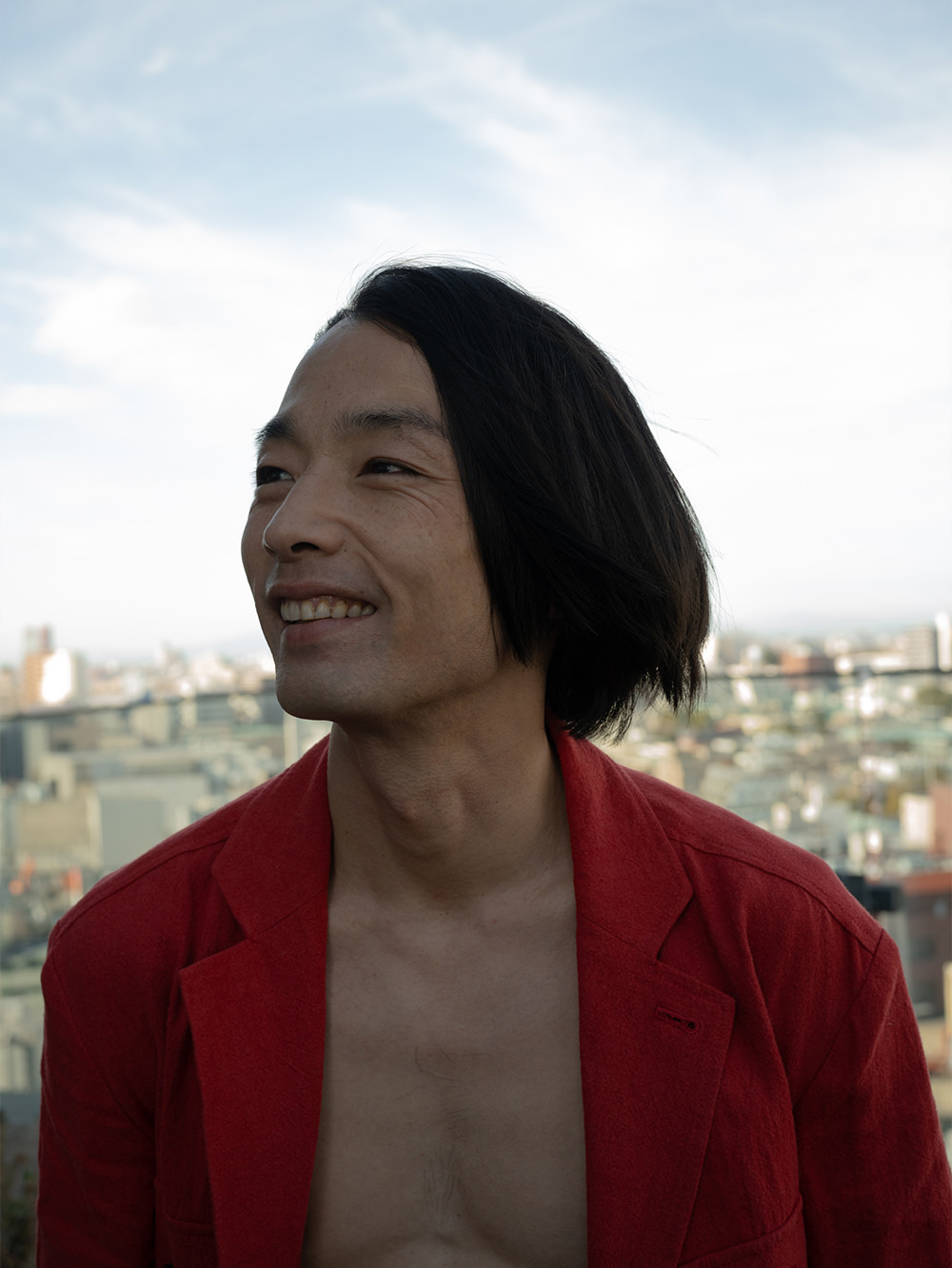
——My brother in the first half was shy and dangerous, but I felt like I was moving from the middle. Have you ever been conscious of how to move your body?
Moriyama: I think that there are some parts that are influenced by Sanai's way of cutting and Mahito's script. Since the middle of the middle, He escapes from the noise that can occur by living, so it may be around that. You barely speak in the second half.
Mahito: What I wanted to take care of in the movie was how to perceive death and how to say goodbye. Death is one goal, and sometimes the word "losing" is applied to it, but in other words, everyone loses, and I think everyone has to carry the theme as a party. In other words, death also makes the soul free from the body. I think I've been talking about that with Mr. Mirai all the time.
——From the middle onward, the work itself will become lighter and lighter. The last scene was particularly impressive. What kind of thing did you think about?
Tomita: I read the lines there in the audition. At that time, I felt like I did the best I could. During the shooting, I talked to Mr. Mahito in various ways and as the shooting progressed, I became more and more responsible. The consciousness of "Receive the love of the characters and speak for yourself at the end" grew steadily. But I don't know how I should have told you. Some time after the filming was over, I finally understood the meaning of the words.
——There is a scene where I repeat many times, "I have to speak with my own voice," but that is exactly what Tomita himself was conscious of.
Tomita: That's right. So, I gradually lost my understanding of how far I am and how far I am.
Mahito: I was walking alone on the way home from the preview yesterday, and I thought this was the story of Ko encountering a poem. Tomita also encounters poems from the point of "I don't know well" and confronts them. I may be able to understand a little about the movie by shooting my future work, but I can't go back to myself when I didn't understand it. I was listening to the story now and I realized why I cast Kentaro Tomita, who said, "I don't know well."
——Also, I felt that the music in the play was increasing the intensity of the work. What kind of image did Mahito imagine about the play Ban?
Mahito: I understand the intentions of all scenes at a synchro rate of 100%, so I think I was able to make use of that characteristic. Rather than focusing on creating the mood of the scene, there are moments where the image precedes more than the story, and the mental scenery that the sound itself leads plays a leading role. After that, the sound of OLAibi, which started to work as a support member of GEZAN, added a new image to my "iai".
——Unfortunately, OLAibi passed away in October last year, but the moment the percussion she hit came in, my heart became full.
Mahito: "Thank you for teaching me the beauty of recording." I don't seem to be able to meet in this world anymore, but the words released in this movie gave me the power to come back to me like a boomerang and stand up again.
——How did you feel when you saw the finished work?
Moriyama: As a result, I thought it was a first-person work of Mahito. The first person of Mahito is engraved on not only the last scene, but also the Hee brothers and other characters, and it is connected in a single work. In the case of the stage, there is a performer on the stage, and there is an audience watching it, and the fiction is shared through the interaction between the two. However, the movie has a video sticking to the screen, and it is based on a one-on-one relationship between the video and the audience. In the dark room of the theater, "Me and the movie" are talking. I think that's the characteristic of the movie, and that's why I like movies. In that sense, I think that this film used the best medium of film to say, "I'm talking to you." To put it simply, Mahito's writer character appeared all over, and I thought it was a powerful work.
——By the way, is Mahito going to continue working as a film director?
Moriyama: You can't do it. I have to take three shots (laughs).
Mahito: Well, it's like the magic of movies. I don't know if making a movie is a job or what it is, but isn't it so happy, including renting a person's life for weeks? I want you to stay after you disappear, and pray for this movie rather than pray to the grave after you die. I think this is more than me in the grave.
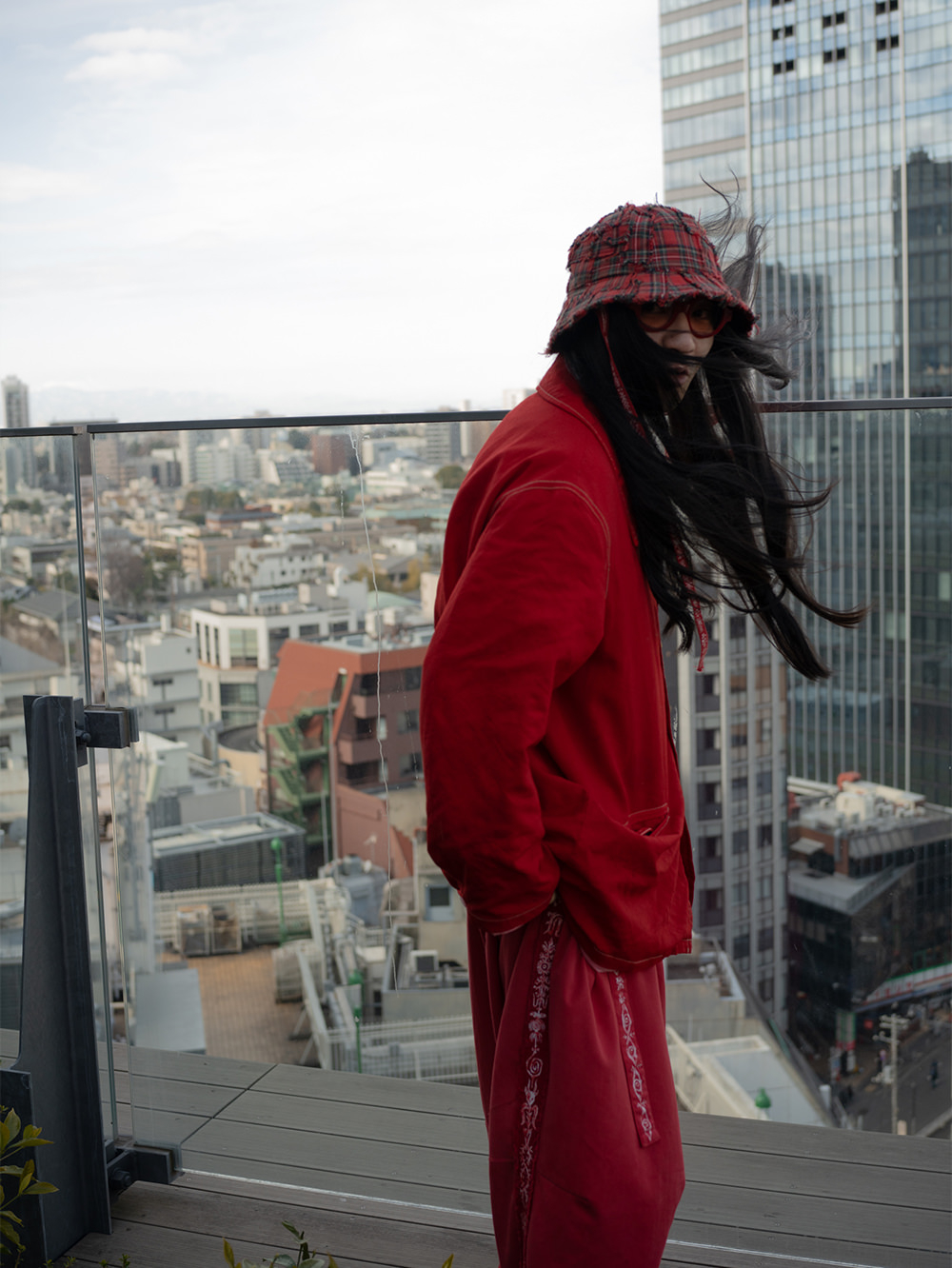
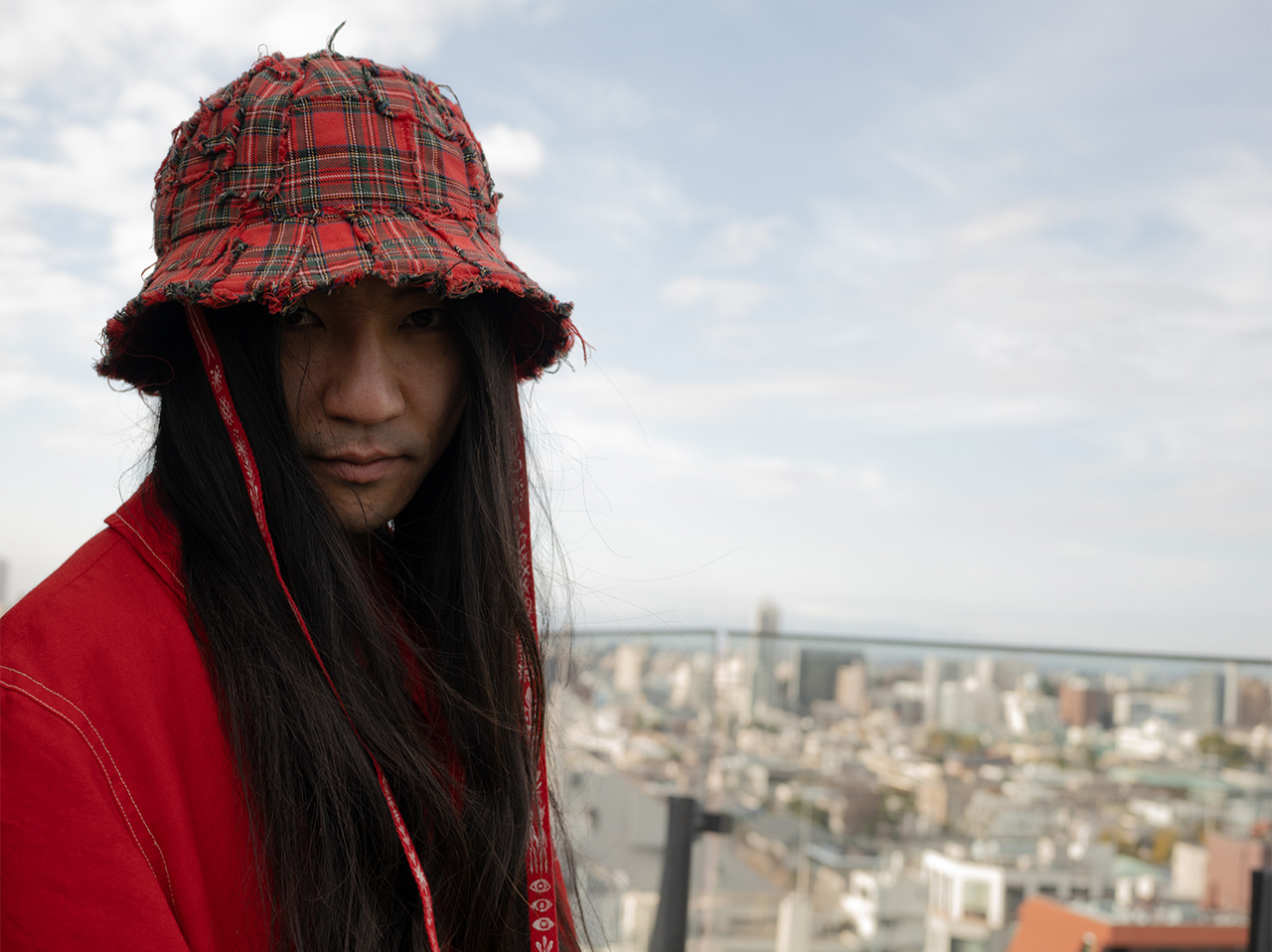
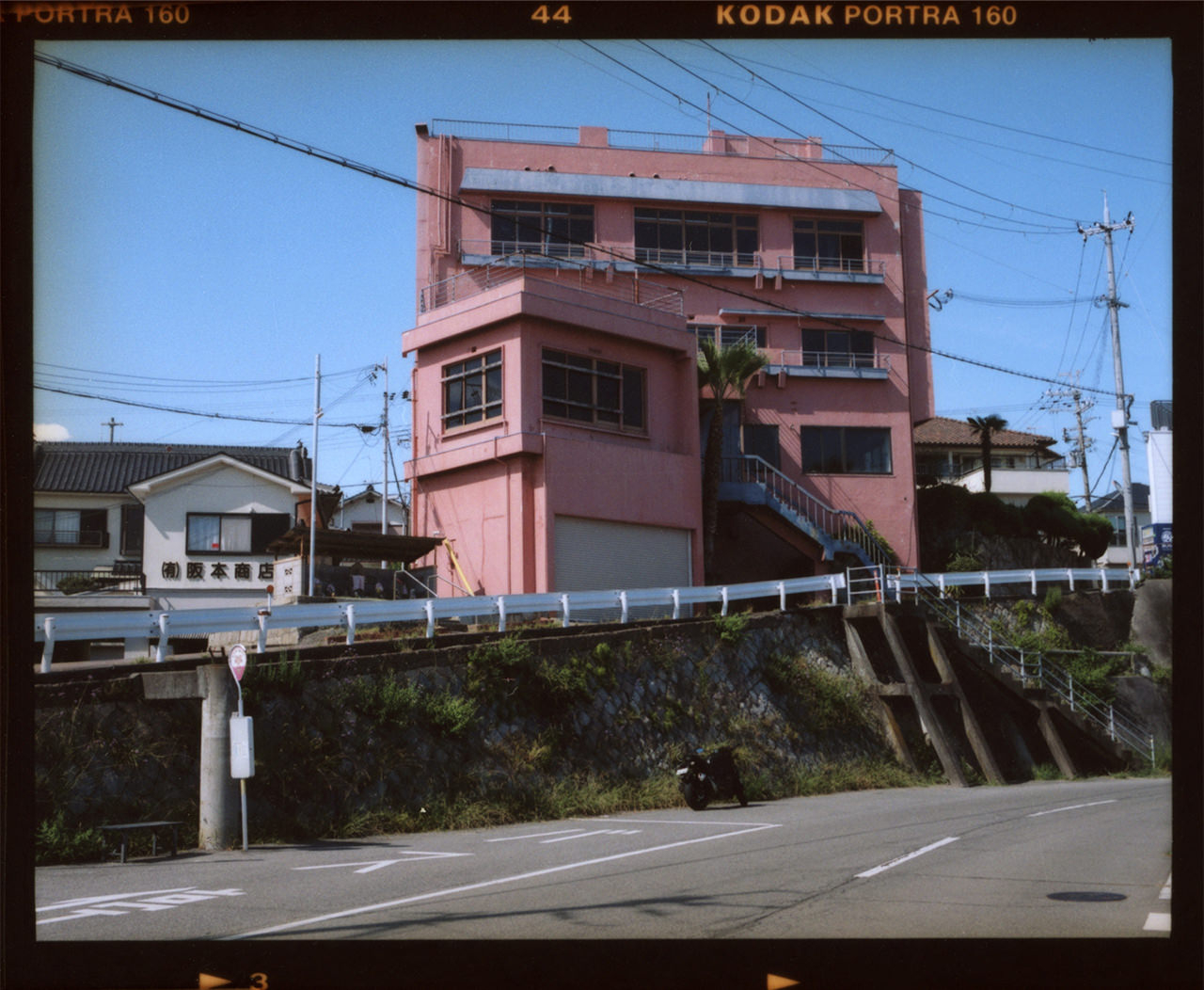
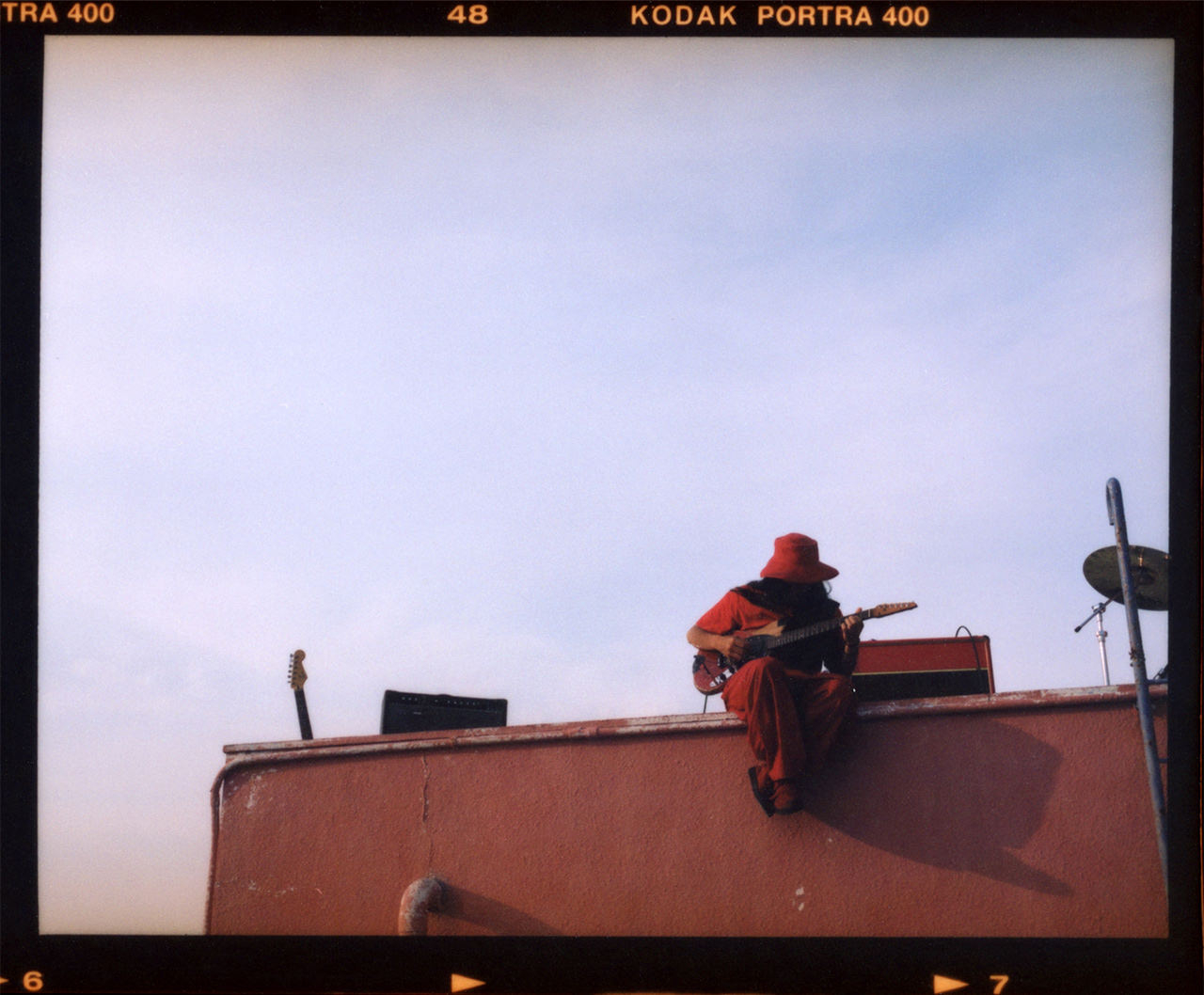

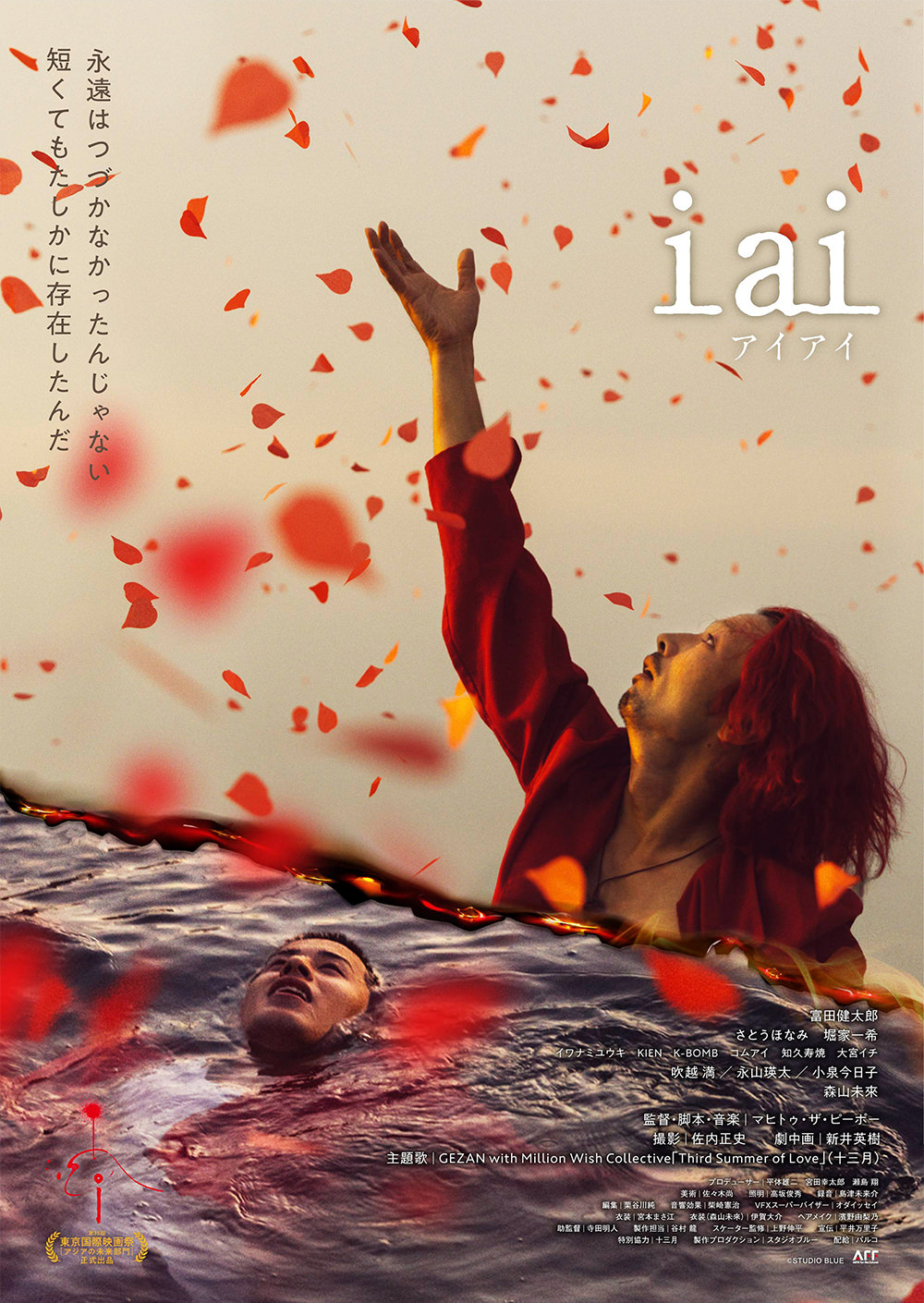
- Performances
- The movie "iai"
- Date of publication
- Friday, March 8, 2024
- Business hours
- From 11:00 to 21:00
- Venue
- WHITE CINE QUINTO
- Cast
- Kentaro Tomita Satohonami Horiya Kazuki Iwanami Yuki KIEN K-BOMB Comai Toshiaki Chiku Omiya Ichimitsu Mitsuru Fukikoshi Nagayama Eita Kyoko Koizumi Moriyama Mirai
- Staff
- Director, Screenplay and Music: Mahit the Peapo
Photo: Masafumi Sanai's drama Chuga: Hideki Arai
Theme song: GEZAN with Million Wish Collective "Third Summer of Love"
Producer: Tairatai Yuni Miyata Kotaro Sejima Sho
Art: Hisashi Sasaki Lighting: Toshihide Kosaka Recorded: Shimazu Mirai no suke
Editing: Kuri Jun Tanikawa Sound Effects: Kenji Shibazaki VFX Supervisor: Odyssey
Costume: Masae Miyamoto Clothing (Moriyama Mirai): IGA Daisuke Hair Makeup: Yurino Hamano
Assistant Director: Akihito Terada Production: Director of Ryu Tanimura Skater: Shinpei Ueno
Advertising: Mariko Hirai Production: Studio blue - Distribution
- PARCO
- Official website
- i-ai.jp
- Official SNS
- X(@iai_2024) Instagram(@i_ai_movie_2024)
© STUDIO BLUE
Picture "iai" autographed brochure present
From March 5 (Tuesday) to March 14 (Thursday), 2024, a gift campaign will be held at Shibuya PARCO Official SNS.
Please apply for the gift by the following method.
①Follow the official Instagram account (@parco_shibuya_official)
②Please comment "Like" on the poster eligible for the official Instagram movie "i ai" autographed pamphlet gift uploaded on March 5 (Tuesday).
A total of 3 people will be presented by lottery from among those who participated.
We will contact you by DM, so please follow Shibuya PARCO official Instagram.
※You can apply only once per person.
※Those who have already followed are also eligible for participation.
※The right to win shall be the owner of the winner, and transfer to a third party (whether paid or free) and cashing will be prohibited.
Announcement of Winning
After strict selection, only the winners will be contacted via Instagram direct message around late March 2024, and the prizes will be sent to the winners. In addition, prizes are scheduled to be shipped in early April 2024. Please note that it may vary slightly depending on the circumstances.
※If you do not respond to the direct message within the deadline, or if you do not provide information such as address after winning notification, the winning will be invalidated.
※The personal information provided by the winner will be used only to inform the winners of this campaign and to send prizes.
※We do not accept any inquiries regarding the reasons for the election.
※Acts that interfere with the operation of social media, acts that violate the purpose, and acts that we judge inappropriate are prohibited.
※This campaign has nothing to do with Facebook Instagram.
※Please note that this campaign is subject to change or cancellation without notice.
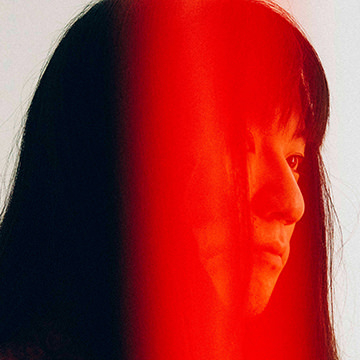
Mahit the Peapo
In 2009, he formed the band GEZAN in Osaka. He wrote lyrics and started music activities as a vocalist. Indie appearances on FUJI ROCK FESTIVAL RED MARQUEE, WHITE STAGE and GREEN STAGE. In addition to solo activities centered on songs, he produced several ALBUMs as NUUAMM with Ichiko Aoba. Operates the March label, which releases artists from Japan and abroad, and hosts the Zensensai Festival. In 2019, he published a novel, the quietest revolution in the galaxy from Gentosha. GEZAN's documentary film Tribe Called Discord is released on Space Shower Film. Appeared in the drama film "Day of Destruction" directed by Toshiaki Toyoda. The essay "Hikaribochi" is released from East Press. A special issue was released in the April 2023 issue of Yurikaka. In the movie "iai", he was in charge of the first director, script, and music, and was screened nationwide by PARCO distribution.
Instagram(@mahitothepeople_gezan)
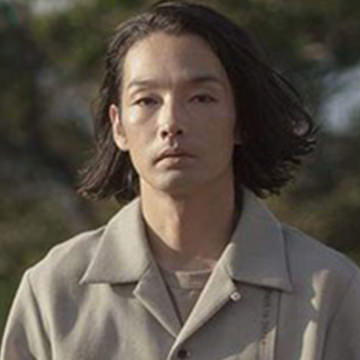
Photo by Takeshi Miyamoto
Mirai Moriyama
He was born on August 20, 1984. Born in Hyogo Prefecture. He studied dance of various genres from the age of 5, and debuted in earnest at the age of 15. In 2013, he stayed in Israel for a year as a Cultural Exchange Envoy for the Agency for Cultural Affairs, and worked in European countries based in Inbal Pinto & Avshalom Pollak Dance Company. We are conducting activities in Japan and overseas across regions in search of "physical expression that emerges from related values." Major films include "Moteki" (2011/Director Hitoshi Daine), "Bitter Train" (2012/Director Atsuhiro Yamashita), "Anger" (2016/Director Shonichi Ri), "Orjas' White Horse" (20/Director Risa Takeba, Ellan Nurmuhambetov), "Underdog" (2020/Director Masaharu Takemasa), "Inuo" (2022/Director Masaaki Yuasa), "Shin Kamen Rider" (23/23/Director Shinnoyama), and others. "The Great Absence" (directed by Kei Chikaura) etc. He was a post dancer.
Instagram(@mirai_moriyama_official)
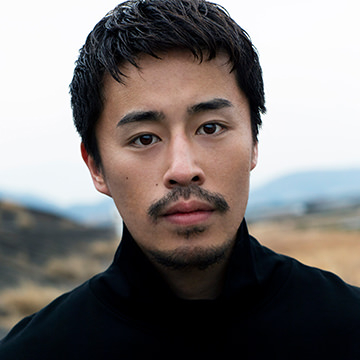
Kentaro Tomita
He was born on August 2, 1995. Born in Tokyo. Major appearances include "Survival Family" (2017 / directed by Fumiyasu Yaguchi), "Modern or Anarchy" (23 / directed by Daichi Sugimoto), drama "I'll do it properly in the next life" (20 / TV Tokyo), drama "Former Scientist-New Rice Protection Officer, Kayo Agawa-" (21 / WOWOW), drama "Hatsukoi, Zarari" (23 / TV Tokyo), stage "Boys in the Band ~ Midnight Party ~" (20 years), "7 times in the thunder" (23 years). In this audition, he was selected as the lead star from a total of 3,500 applicants, and attracted attention.
Instagram(@kentaro_tomita_)
Mirai Moriyama Costume
Jacket ¥76,000, pants ¥32,000 / Sasquatchfabrix.
Shoes ¥40,700 / ASICS RUNWALK
Contact information
Sasquatchfabrix.
ASICS RUNWALK (ASIX Japan Co., Ltd.) 0120-068-806
